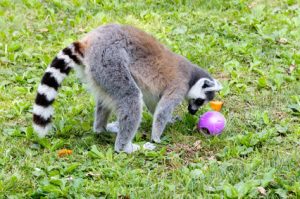Advanced Animal Behaviour Course Information
- This 3 unit animal behaviour Course explores the evolution and physiology of behaviour and behavioural analysis.
- The course is designed to fit into the National Qualifications framework at Level 4.
- The course is advanced and some prior interest; qualification or experience in biology or animal behaviour (such as our Level 3 Behaviour course, or some other work with animals) is be required in our applicants.
- The course is made up of three lessons, these are broken down into three separate modules. Students are expected to take around 9-14 months to complete the course (this will vary a lot depending on experience and available time).
- Assessment takes the form of question papers (nine in total) and report writing (three in total). There is also an optional observation in module three.
*You will have access to the course for 6 months only. You can purchase course extensions.
Unit 1
The Nervous System and how it applies to Animal Behaviour
This unit investigates the nervous system, looking at how it evolved and the role it plays in determining animal behaviour. It moves on to look at the sensory system that is responsible for enabling vision.
Learn about:
a) The evolution of the nervous system and the role it plays in determining animal behaviour.
b) Taking a look at the basic building blocks of the generalised vertebrate nervous system and how it applies to animal behaviour.
c) The sensory system that is responsible for enabling vision and how it evolved. Looking at the function of the compound eye and the vertebrate eye and the concept of visual processing.
Unit 2
Brain Structure and the concepts of Natural & Sexual Selection
This unit covers an overview of brain structure and then looks in more detail at the concepts of natural selection and sexual selection.
Learn about:
a) A basic overview of brain structure and function, taking into account the purpose of the brain and its evolution.
b) Natural Selection and the theories of the Selfish Gene verses Altruism, taking into account behaviour towards kin and non kin.
c) Sexual Selection, incorporating concepts of Intrasexual & Intersexual Selection using different animal species as examples.
Unit 3
Breeding Strategies, Optimality Theory & Ethology in Practise
This unit analyses animal behaviour by looking at breeding strategies, Optimality Theory and Ethology in practise.
Learn about:
a) The evolved arrangements of breeding strategies and the influencing factors affecting these strategies. Looking in more detail at Monogamy, Polygyny and Polyandry.
b) The ways in which Optimality Theory is used to analyse animal behaviour.
c) Ethology in practice (the practical study of animal behaviour) and the different ways in which behaviour can be recorded, and how each method of measurement takes in different aspects of the behaviour.
(Course cost is all inclusive of tutoring fees, assessments, materials and courses registration)
We offer a selection of accredited and employer recognised courses specifically designed for careers working with animals.
If you have any questions about our courses, please contact us.
We’ve assisted many people to achieve their goal to work with animals. Read more about our 5-star reviews and student success stories.
Gain relevant training to achieve your goal to work with animals.


